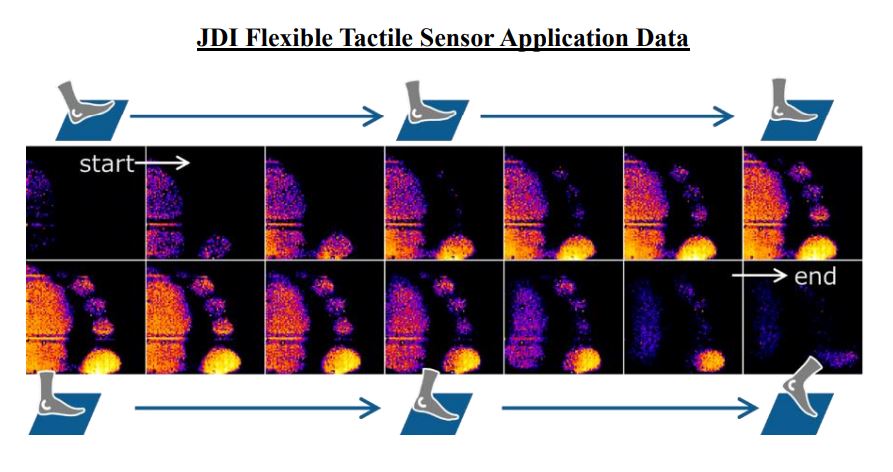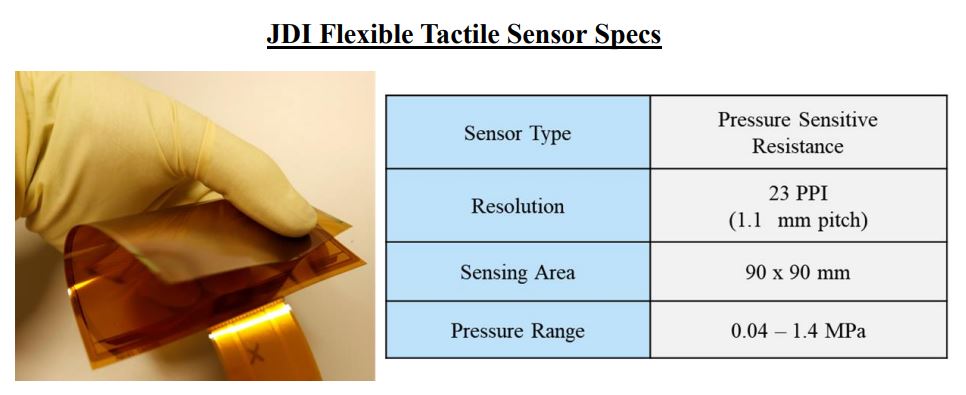Japan Display Inc. (JDI) has developed the world’s first flexible tactile sensor that enables high-precision measurement over a wide area using a matrix of LTPS TFTs (lowtemperature polysilicon thin-film transistors).
Highly accurate tactile measurement is required for the development of a number of new technologies and products, as well as for advanced sports and medical research. JDI’s flexible tactile sensor is suitable for a wide range of applications, such as measuring the grip strength of a robot grasping an object or the pressure distribution on the sole of a person’s foot during walking.
Specifically, tactile sensors are required to measure contact surfaces that are difficult to observe externally. Unfortunately, with conventional tactile sensors it has been difficult to achieve both high precision and broad measurement area. Furthermore, conventional sensors are prone to crosstalk, which makes accurate sensing difficult at high-precision due to the influence of surrounding sensor pixels.
To solve these problems, JDI has developed a high-resolution, crosstalk-free flexible tactile sensor by combining JDI’s advanced active-matrix technology used in displays with a conductive pressure sensitive layer (sensor material whose resistance decreases when pressure is applied) to monitor the current flowing in each sensor pixel. As shown below, in test applications where individuals walk on JDI’s flexible tactile sensor, JDI was able to obtain a high-resolution pressure distribution image in which each toe could be easily identified. The use of JDI’s flexible tactile sensor thus makes it possible to analyze pressure distributions and their transition for each part and location, which has been difficult to achieve with conventional sensor technology.

The results of this development are expected to be applied to advanced motion analysis in the sports and medical fields and to provide tactile sensation to robots. In addition, by sending physical information such as walking and grip data to cyberspace, it will also be possible to use the sensor in the metaverse.
JDI will continue to develop and promote the practical application of, and contribute to the development of the robotics, sports, and medical fields.






 CN
TW
EN
CN
TW
EN





